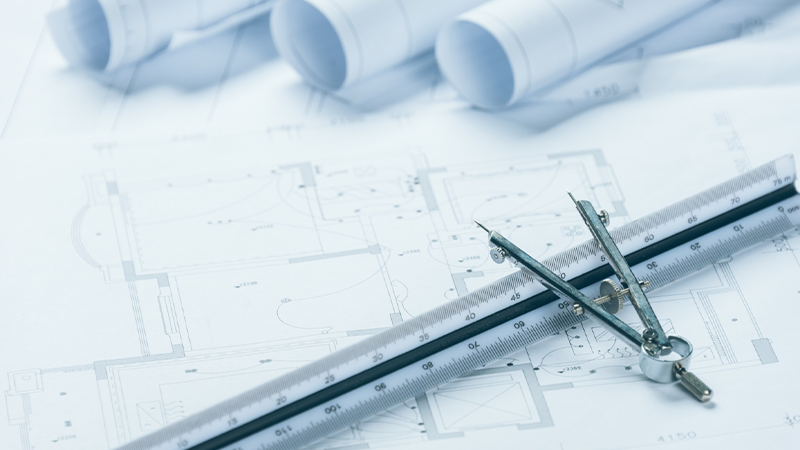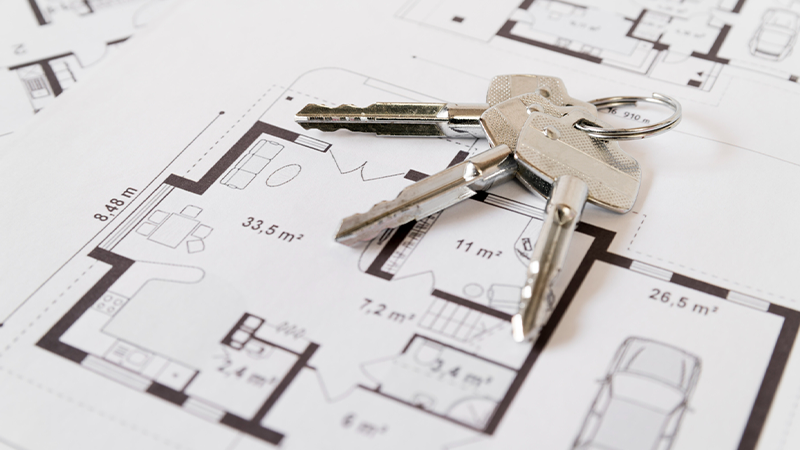Which Offices Provide the Documents You Need to Sell Your Home
When you decide to sell a property, you must collect all the documents that ensure the legality and transparency of the transaction.
Each document serves a specific role in proving ownership rights and facilitating the sale between seller and buyer. Knowing which offices or institutions to contact will help you avoid delays and make sure everything is in order before moving forward with the transaction.
Some documents can be obtained online, while others may require the assistance of professionals such as notaries, surveyors, or certified technicians. In certain cases, you will need to request paperwork directly from local municipal offices or government agencies. By knowing in advance where to go, you can better prepare yourself and make the selling process quicker and free from unnecessary bureaucratic hurdles.
Below, we’ll outline the relevant offices for each document, helping you gather the information you need and complete all the required steps with ease.

Deed of Provenance (Title Deed)
The deed of provenance is one of the most important documents for selling a property, as it proves how the seller became the legal owner.
This document may take the form of a notarial deed of sale, a deed of donation, an inheritance succession, or a court judgment transferring ownership.
In addition to confirming ownership, it provides key information on the legal and financial status of the property, such as any restrictions, encumbrances, or mortgages.
To obtain the deed of provenance, you must contact the notary who drafted the last transfer of ownership. If the deed was issued many years ago, the document may be stored in the relevant district notarial archive.
You can request an authenticated copy or an extract by providing details such as:
• the notary’s name
• the date of the deed
• the reference number
• the type of deed (sale, donation, etc.)
If these details are not available, you can ask the notary or the archive to conduct a more detailed search.
Alternatively, if the document is not readily available through the notary, you may check with the Italian Revenue Agency (Agenzia delle Entrate), since all property transfers must be registered there.
In this case, you will need to provide details about the property and the previous owner.
The deed of provenance is essential not only for the sale itself but also for the notary handling the transaction, who must verify the legitimacy of the transfer and confirm that there are no legal issues affecting the property.
Without this document, the sale cannot be completed, making it crucial to obtain it as early as possible.

Cadastral Floor Plans (Planimetrie Catastali)
Cadastral floor plans are essential graphical representations of a property, showing in detail its internal layout, room distribution, and boundaries.
These documents help ensure that the property matches the cadastral records and confirm that no unauthorized modifications have been made that could affect the sale.
Floor plans are required by both buyers and the notary during the sale process to verify that the physical condition of the property corresponds to the official records.
To obtain cadastral floor plans, you must contact the Italian Revenue Agency (Agenzia delle Entrate) at the Provincial Office responsible for the property’s location.
These offices maintain the archives of floor plans and issue them upon request by the owner or an authorized representative. Thanks to the digitalization of cadastral services, it is also possible to request floor plans online via the Revenue Agency’s website.
To submit the request, you will need:
• the owner’s tax code (codice fiscale), if available
• the property’s cadastral references (map sheet, parcel, and subaltern)
These details allow the property to be precisely identified in the cadastral archives. It is important to ensure that the requested plans are up to date, as discrepancies between the current state of the property and its graphical representation may cause delays or issues in the sale.
For example, if an undeclared renovation has altered the room layout, the situation must be regularized through a licensed surveyor (geometra) before proceeding with the sale.
Cadastral floor plans are also crucial for confirming the property’s urban planning compliance, especially if significant structural modifications have been made over the years.
In cases of discrepancies between the actual condition and the cadastral records, the plans must be updated and a compliance declaration submitted to avoid legal or bureaucratic complications.
Having an up-to-date floor plan available from the beginning of the selling process increases transparency, builds buyer confidence, and speeds up the notary’s checks and other verifications.
Cadastral Map Extract (Estratto di Mappa) — for Properties with Land
The cadastral map extract is a key cartographic document when the property for sale includes land, as it provides a graphical representation of the area.
It shows the exact location of the land within the municipal territory, highlighting its boundaries, size, and relationship with neighboring parcels.
This document is essential to confirm ownership and to ensure that there are no discrepancies between what is declared and the actual state of the land. It is also commonly required for urban planning purposes or to check the land’s compatibility with specific uses.
To obtain a cadastral map extract, you must contact the Italian Revenue Agency (Agenzia delle Entrate) at the Provincial Office responsible for the location of the land. This office manages cadastral and cartographic data for land properties and issues extracts upon request. It can also be requested online through the “Estratto mappa online” service on the Agency’s website — available in this case only to professionals.
To submit the request, you will need:
• the cadastral references of the land (map sheet and parcel)
• the owner’s tax code (codice fiscale)
These cadastral details allow precise identification of the parcel, avoiding errors or delays in the process. Alternatively, you can authorize a licensed surveyor (geometra) to request the cadastral map extract on your behalf.
The cadastral map extract is particularly useful to confirm property boundaries and identify possible irregularities, such as encroachments or unauthorized use by third parties. In some cases, it may be necessary to integrate the extract with additional documents, such as a technical report prepared by a surveyor, to verify cadastral and urban planning compliance — especially if changes have occurred over time, such as the division or merging of parcels.

Urban and Cadastral Compliance Report (Relazione di Conformità Urbanistica e Catastale)
The Urban and Cadastral Compliance Report is one of the most important documents to obtain before selling a property.
It certifies that the property complies with local building regulations and that its structural and functional features match the records filed with the Land Registry. Without it—or in case of discrepancies—the sale process may be delayed or even blocked.
On the urban side, the report verifies that the property was built or modified in accordance with municipal building permits. Unauthorized extensions or structural changes must be regularized before selling to avoid objections from the buyer or notary.
On the cadastral side, it checks that the property’s current condition matches the registered cadastral documents. Any discrepancies—such as outdated floor plans or incorrect use designation—must be corrected before the sale.
To obtain the report, a licensed professional (e.g., surveyor or architect) must access municipal records, review permits and licenses, and compare them with the property’s current state. Cadastral details and, in some cases, original building or renovation plans are required. If unavailable, these can be retrieved from municipal archives or reconstructed by a professional.
This report is a key safeguard to avoid legal or administrative issues after the sale.
Energy Performance Certificate (Attestato di Prestazione Energetica – APE)
The Energy Performance Certificate (APE) is mandatory for property sales in Italy and provides essential information about a building’s energy efficiency.
It assigns an energy class ranging from A (most efficient) to G (least efficient) and informs buyers about future energy costs.
To obtain the APE, you must hire a qualified technician (architect, engineer, or surveyor) who will carry out an on-site inspection.
They collect data on structural features, insulation, windows, and heating/cooling systems. Documentation of past energy upgrades (e.g., solar panels, thermal insulation) may also be required.
Based on these findings, the technician calculates the property’s energy performance and assigns the appropriate class.
The certificate must then be registered with the regional or provincial energy registry—often through online platforms.
The APE is valid for 10 years unless major renovations or system upgrades alter the building’s energy characteristics.
It must be provided at the time of sale and attached to the notarial deed.
Moreover, the energy class must appear in all property listings, ensuring transparency for buyers or tenants.
A property with a high energy rating is often more attractive on the market, as it guarantees lower running costs over time.

System Certifications (Certificazione Impianti)
System certification is a fundamental document that proves the safety and compliance of a property’s technical systems, such as electrical, plumbing, and heating installations.
This documentation ensures that the systems have been installed and maintained according to current regulations, safeguarding both the seller and the buyer. Without proper system certification, the sale process may be delayed or even rendered invalid.
Each system—whether electrical, plumbing, or heating—must be installed and certified by a licensed professional, such as a certified electrician or plumber.
Upon completion of installation or major maintenance work, the technician issues a Declaration of Conformity (Dichiarazione di Conformità – DiCo), which certifies that the system has been safely and legally installed. This declaration follows the guidelines of Italian Ministerial Decree 37/2008, which regulates the installation and maintenance of building systems.
If the system has not been updated or the original DiCo is unavailable, it is possible to request a Declaration of Compliance (Dichiarazione di Rispondenza – DiRi), issued by a qualified technician after a thorough inspection of the existing system.
System certification generally covers three key areas:
• Electrical system – Confirms that the electrical installation was properly carried out and meets safety standards, preventing risks such as short circuits, overloads, or electrical leakage. This certification is essential to protect against electric shocks and ensure the correct functioning of connected appliances.
• Plumbing system – Certifies that the water supply and drainage system was installed in compliance with current regulations, ensuring safety and preventing leaks, malfunctions, or water pressure issues.
• Heating and air-conditioning system – Ensures that the heating, cooling, and ventilation systems are safe and efficient, reducing the risk of gas leaks, boiler malfunctions, or temperature regulation problems.
For older properties or outdated systems, the original certification may not be available. In such cases, a qualified technician can carry out an inspection and, if the system complies with current safety standards, issue a certification retrospectively.
If the system is not compliant, upgrades and improvements will be necessary before obtaining certification and proceeding with the sale.
Final Note
Selling a home can be a complex process, but with the right preparation it can be handled smoothly and confidently.
Carefully gathering all the necessary documents is essential to ensure that the transaction is completed quickly and without complications.
For professional assistance in preparing the required documents, don’t hesitate to contact the experts at Hasamia, who are ready to guide you through every step of the selling process.





